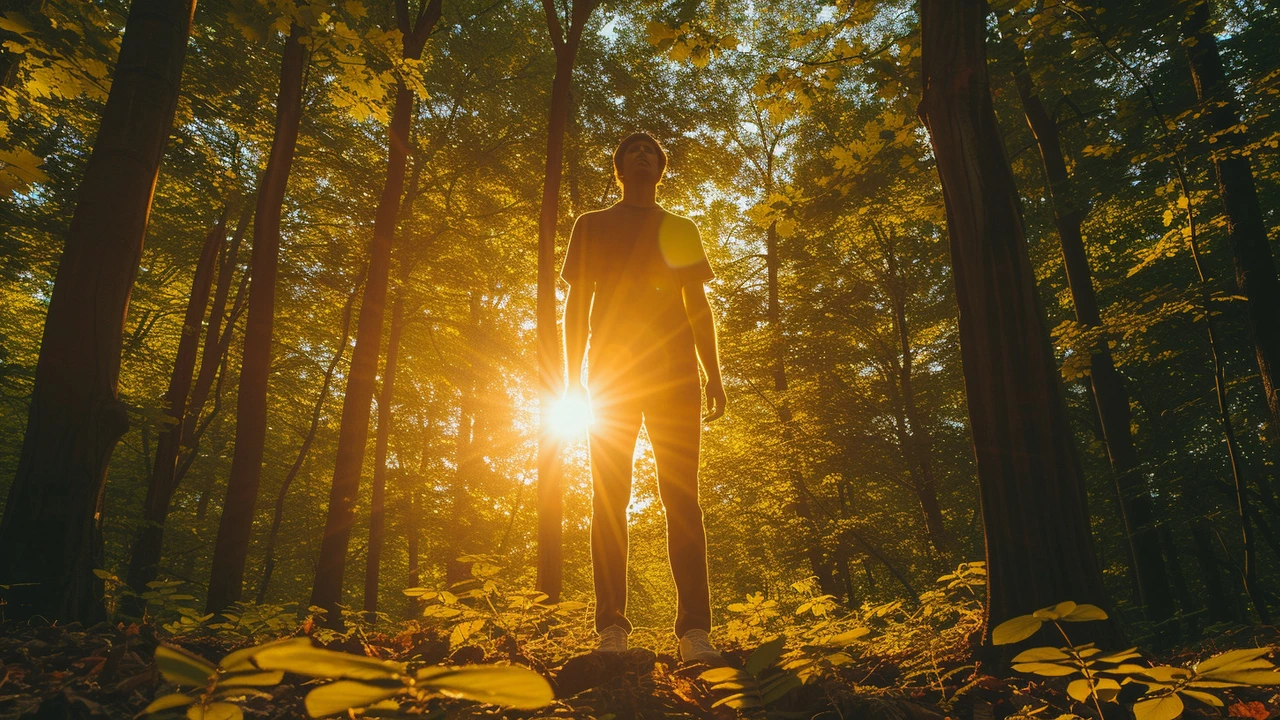Introduction to Bioenergetics
Picture this: It's your typical Monday afternoon complete with the sluggish feel that the early week brings, but instead of reaching for that steaming cup of coffee, you tap into your body's natural energy reserve with the power of bioenergetics, and you're suddenly rejuvenated. Yes, that's right. Bioenergetics, an emerging science that could move us beyond the conventional, synthetic roads to energy and into an understanding of our innate, biological capacity to generate and use energy efficiently.
Being in the blogging scene has allowed me to delve into various interesting topics, and bioenergetics is no exception. Just as Isabella, my incredibly talented wife who's a professional yoga instructor, started exploring the mysteries of energy flows within our bodies through traditional practices, I decided to unravel the scientific facet of it through bioenergetics.
Fresh Understanding of Energy
The crux of bioenergetics lies in the understanding of energy. Most of us have learned about energy in school, generally in the contexts of physics and chemistry. But this new discipline of bioenergetics brings energy into our biological domain, with a focus on how our bodies produce, store, and utilize energy.
Bioenergetics resides at the conjunction-reconciliation of ancient wisdom and modern science. On one side, it links back to age-old theories, such as qi in Traditional Chinese Medicine or prana in Ayurveda. On the other, it discourses with current research on cellular processes and biochemical reactions that create energy in our bodies.
Bioenergetics in a Nutshell
Bioenergetics is essentially how life generates, maintains, and extinguishes energy. It refers to all the molecular mechanisms by which cells digest nutrients and convert them into the energy required to perform numerous tasks. Think of it as an intricate factory within your cells, with specialized workers (enzymes) and specific workflow (metabolic pathways).
If your cells could talk, each one might sound like a hyper-efficient project manager, managing resources and scheduling tasks down to the second. When you run, eat, sleep, or even just think about something, it's the tireless wonders of bioenergetics at work.
The Human Dynamo: Mitochondria and Bioenergetics
In the grand scheme of bioenergetics, a place of honor is given to our mitochondria, those tiny powerhouses residing in virtually every cell of our bodies. It's these diligent troopers that orchestrate the incredible symphony of energy conversion. And boy, do they do a good job!
A mitochondrion isn't simply an energy factory; it's a testament to the marvel of biological evolution, a beacon of hope in the quest for sustainable energy solutions, and a ceaseless reminder of our common genetic heritage. Without mitochondria, all the energy-rich food in the world would be pointless because it would be akin to having a car full of gas but no engine to run it.
Mastering Your Cell's Energy with Bioenergetics
In a practical sense, understanding bioenergetics can offer strategies to harness your body's energy. Bioenergetics-based diets, for instance, strive to maximize the efficiency of energy conversion in our cells. These diets are not about “eating less and moving more” but eating and living smarter, on the terms set by our very own biology.
Funny enough, this reminded me when Isabella and I planned a trip to hike Mount Kosciuszko. She was quite excited, while I was more worried about my stamina. Leaning in on bioenergetics-based diet, I focused on foods rich in complex carbohydrates and proteins, nutrients that I knew would offer a slow, sustained release of energy. It did wonder to my energy levels and we successfully completed the hike without me gasping for breath every now and then.
On another end of the scale, bioenergetics theories can give rise to therapeutic approaches that target the energy machinery of our cells itself. For decades, medicine has been at war with pathogens and disease agents from outside. But perhaps it's time we look inside: to the energy factories that, when they malfunction, could lead to numerous diseases.
In a world where exhaustion has become a badge of honor, understanding and implementing bioenergetics could be the key to reclaiming our vitality. Hands down, bioenergetics could very well be the "new kid on the block" in the scientific world that changes our life for the better.
As with any discipline in its infancy, there is a lot we don't know about bioenergetics. But from what we do know, we can already see the potential for incredible breakthroughs in our pursuit of sustainable, healthful energy. Embracing bioenergetics isn't just about understanding science; it's about understanding ourselves on an entirely new level. So, the next time you feel your energy levels dipping, remember, there's an unstoppable force within you, just waiting to be harnessed.
